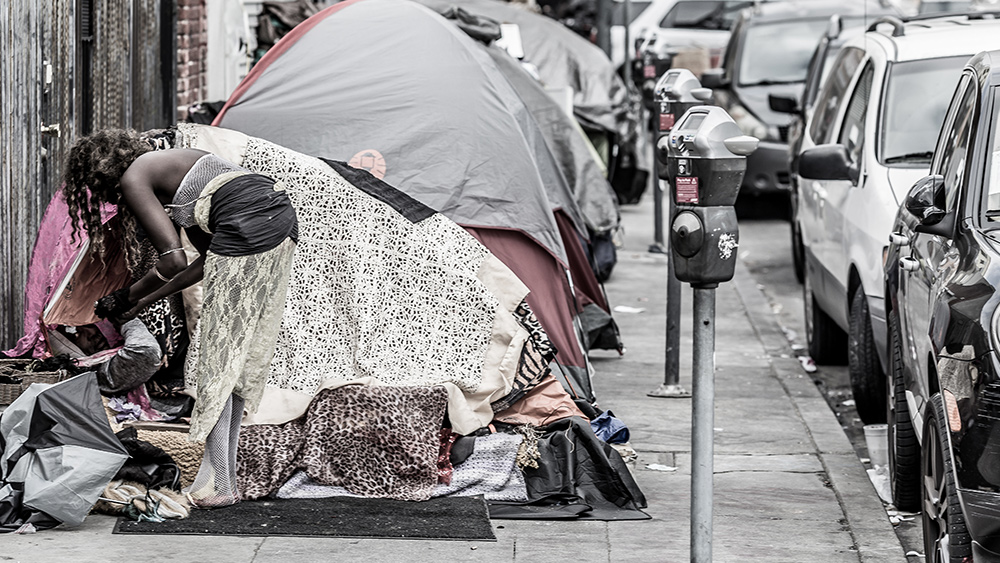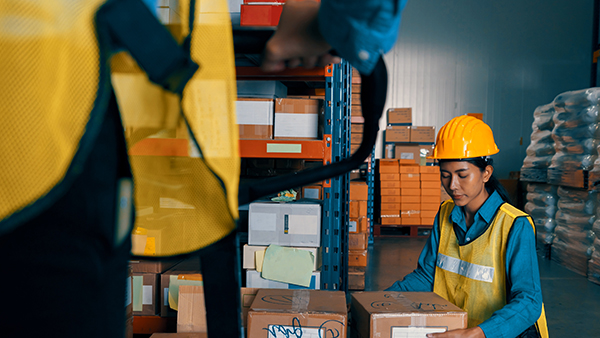
Local food banks across the country are facing a shortage of food and increased demand caused mainly by record-high inflation.
The rise in food, gas and housing prices across the board has forced many Americans to rely on food banks to alleviate their food supply woes. One such food bank offering relief is Bay View Community Center (BVCC) in Milwaukee. But the pantry itself needs help now.
BVCC coordinator Chad Vandierendock lamented that the food bank has run out of certain food items, if not running low on them.
"We haven't had access to eggs in several months, [and] our connection to milk is going to be drying up," he told Milwaukee TV station CBS 58.
BVCC serves more than 1,800 households in four different ZIP codes, and is always looking for more volunteers. However, Vandierendock mentioned that the community center has seen 797 patrons, an almost 15 percent increase, in June 2022. That's the highest number of people the center has served since the onset of the Wuhan coronavirus (COVID-19) pandemic in March 2020.
"Everything costs more right now and that's definitely hitting people in the pantries. COVID money is drying up, so whatever extra benefits people had through the pandemic are just leaving now. That just puts an extra burden on families that are just looking to eat," he said.
Funding from the federal government at the height of the COVID-19 pandemic is running out, which leaves families with fewer options. Aside from food items, household items such as paper towels, soap and tissue paper are also succumbing to inflation – putting more strain on American households.
To address families' food supply issues, BVCC gives out pre-made boxes for pantry guests. These boxes contain food items such as pasta, peanut butter, cereal and more. The food bank coordinator nevertheless lamented that these ingredients cannot sustain a full meal.
"There are definitely some things I would like to be able to include in here," said Vandierendonck.
Iowa food banks also feeling the pinch
The Wisconsin-based BVCC is not the only establishment in need of relief amid the inflationary period. Two food banks in neighboring Iowa shared their predicaments to the Iowa Capital Dispatch, their issues likewise centering on increased demand and dwindling supply.
Kathy Pinkerton, service center coordinator for the Salvation Army of Ames, said appointments for their pantry are always filled up every day – in some cases, even a day in advance. She added that while families can pick up nonperishable items at the food bank once a month, she anticipated the need to increase that limit if demand continues to soar. (Related: Supply chain crisis disrupts operations of food banks.)
"My though is: If someone tells me they are hungry, they are," Pinkerton told the news outlet. "Not only do their food assistance dollars not go as far, but they have a lot less."
Matt Unger, CEO of the Des Moines Area Religious Council (DMARC), said food pantries in the Hawkeye State had more visitors after the COVID-19 emergency declaration ended on April 1. DMARC saw a more than 40 percent increase in April, which rose to 60 percent come may. This increased demand, coupled with price increases, made Unger nervous about the fall season – when food banks usually see more patrons.
The DMARC head also recounted the difficulty of procuring meat, which always has the highest demand. "There was one time we were able to get pounds of ground beef for the same price we would have paid for three five-ounce cans of chicken. So to be able to actually get fresh ground beef for the same cost of 15 ounces of canned chicken was really unheard of before some of the stuff that has been going," said Unger.
Visit Hunger.news for more stories about food banks in the U.S. facing increased demand.
Watch the video below as Magic Prepper talks about the message food bank shortages send out.
This video is from the Survival 101 channel on Brighteon.com.
More related stories:
Food banks see increasingly long lines as food inflation soars and more Americans face hunger.
'My shelves are bare': Biden's failure to control inflation is wrecking America's food banks.
Many in North America barely able to afford one meal a day, thanks to FOOD INFLATION.
Inflation and Biden economic policies forcing more Americans to turn to food banks.
Americans lining up outside food banks as record inflation continues.
Sources include:
Please contact us for more information.





















